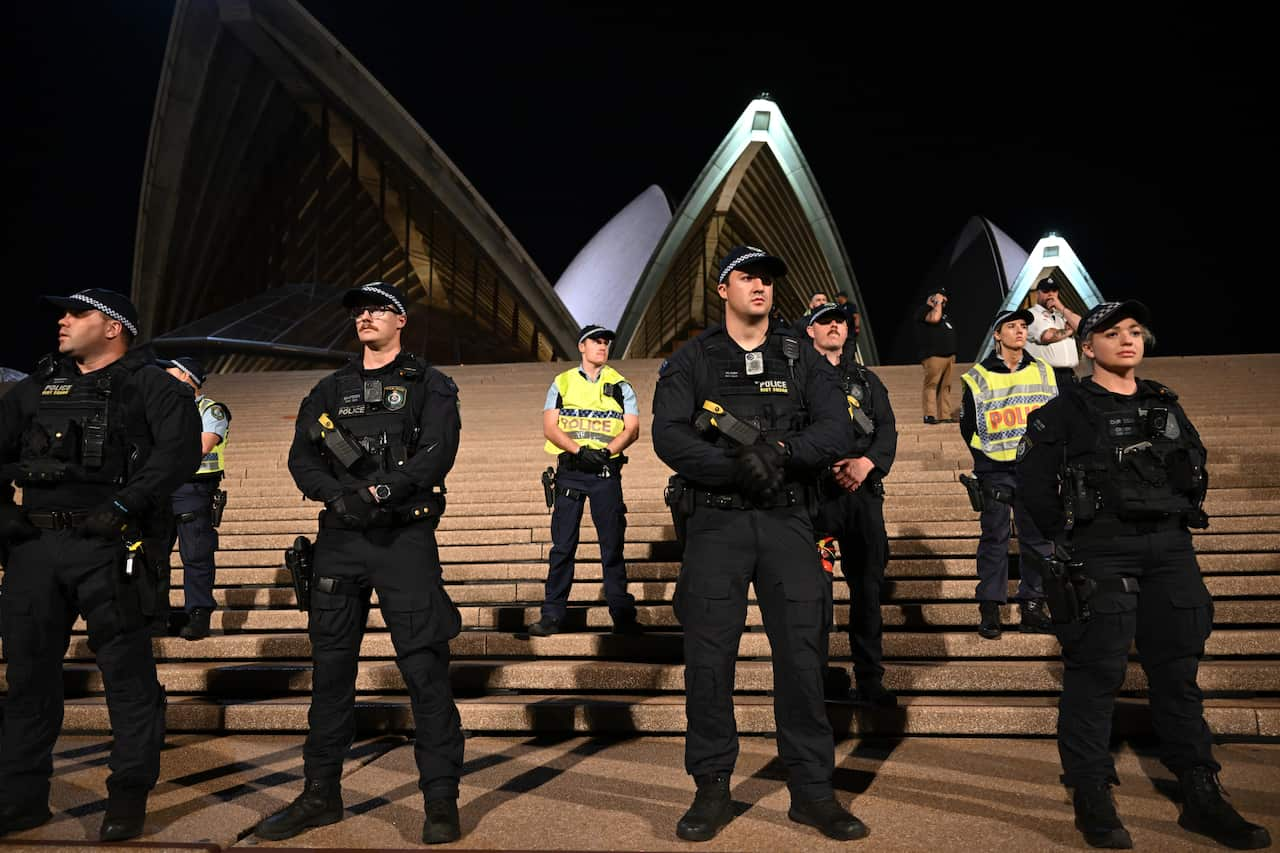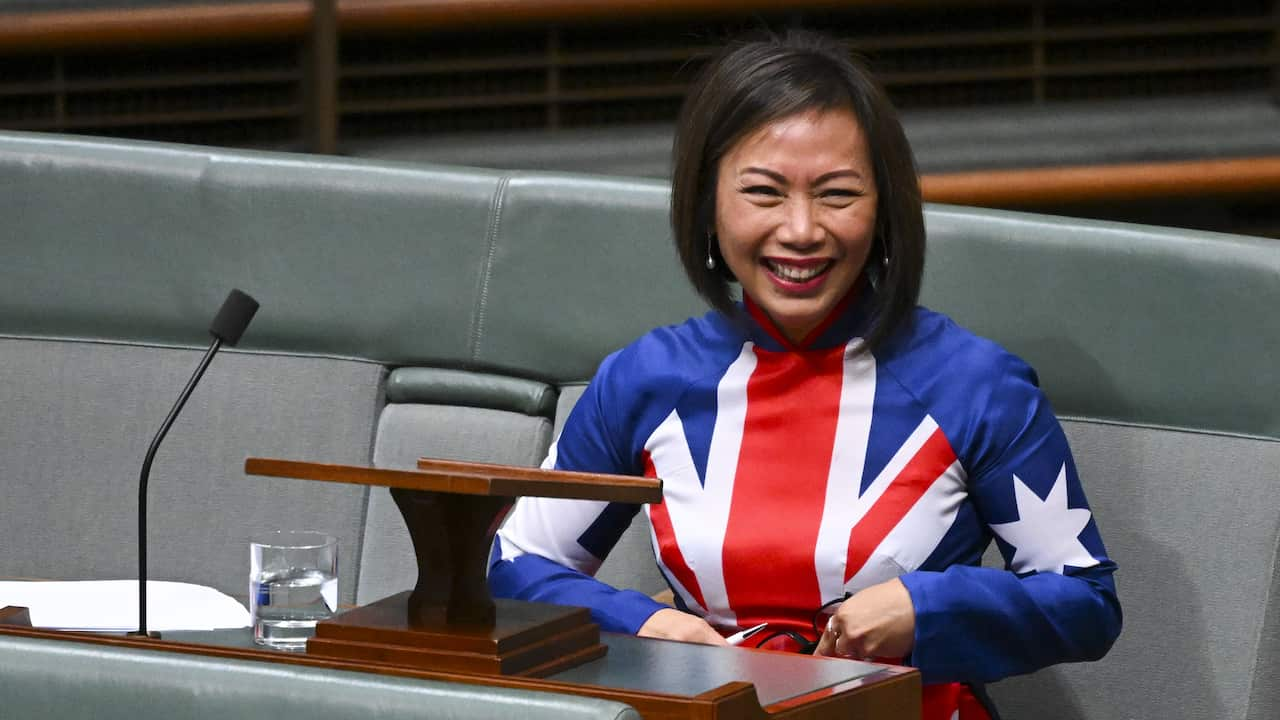“If those things line up on top of each other, then there’s quite dangerous potential in those situations for something to go very wrong.”

Bishop Mar Mari Emmanuel was stabbed while delivering a live-streamed sermon. Source: Supplied / YouTube
Economic conditions can impact cohesion
Last year the Scanlon-Monash Index of social cohesion declined by four points to 79, the lowest score on record. The decline was apparently driven by growing concern about economic inequality and fairness.
People are saying that the economic situation is likely to deteriorate over the next couple of years, and within that framework, the level of racism may increase as well
Professor Andrew Jakuobowicz, University of Technology Sydney
“If people feel that they’re in a bad economic situation, and that economic situation is a consequence of structural racism against them, then that can intensify very dramatically into significant conflict and the undermining of trust.”
Australia is ‘under enormous stress’
“Australia is currently under enormous stress in relationship to multicultural policy and particularly interculturalism,” he said.

Police watch participants of a pro-Palestinian protest outside the Sydney Opera House in Sydney, Monday, October 9, 2023. Source: AAP / Dean Lewis / AAP
“The situation in the Middle East is causing immense stress in many of the Middle Eastern communities, obviously in the Palestinian community and in the Jewish community.
But while Australia has performed “fairly well” when it comes to settling new migrants in the country, Jakubowicz said the country was not doing well in helping communities engage with other cultures and protecting them against racism.
“If you look at the people who actually decide what is going to happen in this country in terms of the law, there’s no participation in that of people from non-European backgrounds, and that’s a fairly damning reflection,” he said.
Should people set historical grievances aside?
But especially for the older generation, it was important for them to have a place where they felt like they belonged, and this was often in areas where people spoke their language, and they could buy traditional food and groceries.

Member for Fowler Dai Le during her first speech in federal parliament. Source: AAP / Lukas Coch
“I think that people have that connection and that tie to their birthplace and you can’t deny them that,” she said.
“If you have family back in the countries (from) where you escaped, you’re fearful for your families,” she said. “And out of fear people then react.”
Professor Jakubowicz said he believed people should be able to retain their passionate attachment to their origins but it should not develop into violence.
If you look at the people who actually decide what is going to happen in this country in terms of the law, there’s no participation in that of people from non-European backgrounds, and that’s a fairly damning reflection
Professor Andrew Jakuobowicz, University of Technology Sydney
“There is nothing in the Australian ethos that would licence violence between communities based on stuff that’s happening overseas.”
Is Australia still ‘the most successful’ multicultural nation?
In the days after the Wakeley knife attack and subsequent riot, the prime minister was asked whether multiculturalism was failing in Australia.
There’s a rapid rise in both antisemitism and Islamophobia in Australia, and the capacity to manage that is not as well developed as it should be
Professor Andrew Jakuobowicz, University of Technology Sydney
Some commentators are again questioning whether Australia’s cultural diversity is “not a strength but a stress”. This includes Andrew Bolt, a columnist for the country’s biggest-selling daily newspaper, the Herald Sun, who has long questioned whether multiculturalism is failing, saying it encouraged people to live in “tribes”.
Around 60 per cent of residents in Le’s electorate of Fowler were not born in Australia and she said the local Fairfield City Council had settled about 10,000 of the 12,000 refugees Australia has accepted since the Iraq War.

A man jumps on a police car during a riot after Assyrian Bishop Mar Mari Emmanuel and Father Isaac Royel were stabbed during a live-streamed sermon at Christ the Good Shepherd Church in Wakeley. Image supplied by New South Wales Police Source: AAP / PR IMAGE
She said residents were concerned about media reporting, and the riot subsequent to the stabbing, which saw 51 police vehicles damaged and more than 50 officers injured.
“In my door-knocking, people weren’t actually talking about (the riot), they just wanted to get on with their lives, and they were talking about the cost of living that’s impacting them,” Le said.
“I would really caution people about taking any one particular moment in time and suggesting that that’s going to create a huge crack in social cohesion. Australia is a highly cohesive society,” she said.
Why Australians must ‘trust thy neighbour’
It included people trusting others to behave in ways that wouldn’t harm them, that they’d be treated fairly, and opportunities wouldn’t be limited on the basis of their background.
He said the more comfortable and confident people were in multicultural situations — regardless of their own cultural background — the higher the level of trust, and social cohesion.
A path for a “sustainable” multicultural policy
But Jakubowicz said other countries like Canada were doing multiculturalism better.
He said multiculturalism should be seen as an asset that needs to be enhanced, developed and capitalised on — not treated as a negative issue.
Integration is really about trying to get people to feel part of a community … and they build that shared identity (through) making a valuable contribution to society, and that they’re afforded all the rights and responsibilities like everyone else
Bulent Hass Dellal, Australian Multicultural Foundation
“It’s a real asset in so many ways.”

While reading this article, I couldn’t help but agree with Professor Andrew Jakubowicz’s warning about the dangerous potential for economic stress to impact social cohesion. It’s truly concerning how financial difficulties can exacerbate existing social issues. Let’s hope for proactive solutions to prevent any further unrest in our communities.
Does the article mention any specific measures being considered to address the economic stress and potential increase in racism that may threaten social cohesion in Australian communities?